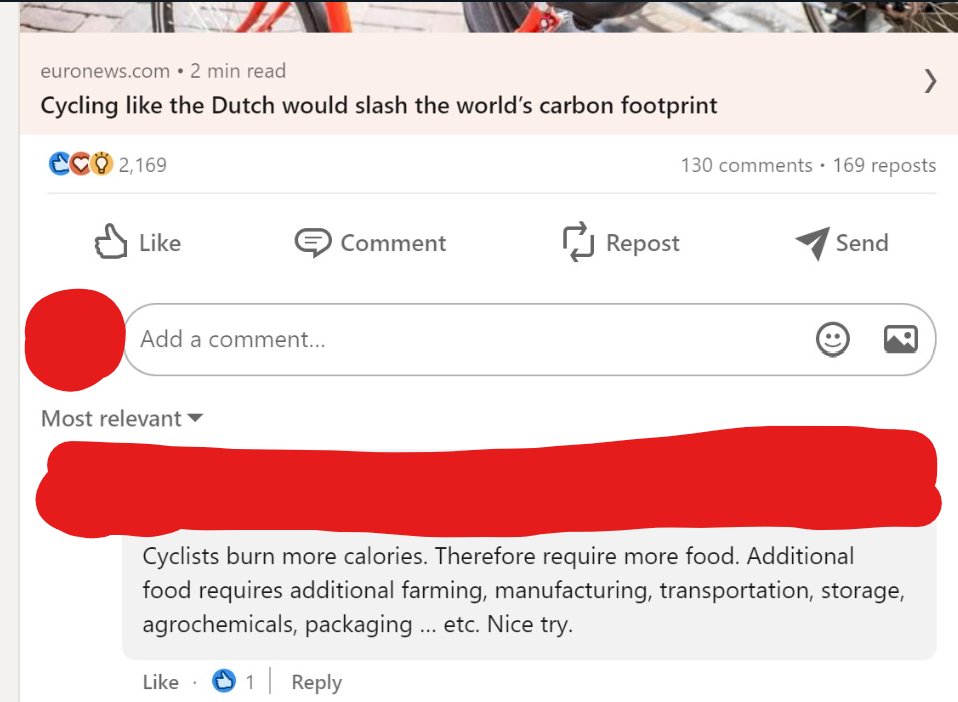Fuck Cars
A place to discuss problems of car centric infrastructure or how it hurts us all. Let's explore the bad world of Cars!
Rules
1. Be Civil
You may not agree on ideas, but please do not be needlessly rude or insulting to other people in this community.
2. No hate speech
Don't discriminate or disparage people on the basis of sex, gender, race, ethnicity, nationality, religion, or sexuality.
3. Don't harass people
Don't follow people you disagree with into multiple threads or into PMs to insult, disparage, or otherwise attack them. And certainly don't doxx any non-public figures.
4. Stay on topic
This community is about cars, their externalities in society, car-dependency, and solutions to these.
5. No reposts
Do not repost content that has already been posted in this community.
Moderator discretion will be used to judge reports with regard to the above rules.
Posting Guidelines
In the absence of a flair system on lemmy yet, let’s try to make it easier to scan through posts by type in here by using tags:
- [meta] for discussions/suggestions about this community itself
- [article] for news articles
- [blog] for any blog-style content
- [video] for video resources
- [academic] for academic studies and sources
- [discussion] for text post questions, rants, and/or discussions
- [meme] for memes
- [image] for any non-meme images
- [misc] for anything that doesn’t fall cleanly into any of the other categories
Recommended communities:
view the rest of the comments

I hate to be that guy, but this is true. Before you pull out your pitchforks, read this explanation.
I take a bicycle to essentially all of my local errands, so I thought it would be cool to write an app that calculates how much CO2 emissions you've saved based on the number of errands you've run by bike (by distance). I wanted to consider everything, like food intake, emissions associated with manufacturing, etc. To be clear, the exact emissions varies wildly depending on what numbers you plug in, but it almost always comes out in favor of a passenger car. This only considers CO2 emissions, and ignores noise pollution, microplastics, and other potential environmental issues.
Long story short, if the following things are true, you'll probably release less CO2 by taking a car:
These assumptions do make quite a few concessions, but I think it's fair to say the majority of Americans fit these criteria.
In order of CO2 emissions per mile using the same assumptions as above (lowest to highest):
This is not me suggesting cars are better for the environment overall, but it's an uncomfortable fact that humans are wildly inefficient at converting chemical energy into kinetic energy. Just think about the fact that when you burn 1000 extra calories per day, a significant portion of those calories had to be driven hundreds of miles on a diesel truck after spending months/years being grown on a farm.
Here's the factors I considered. Let me know if you can think of anything I missed and I'll re-run the numbers:
Here's some things I did not consider:
I guess the moral of the story is that being vegetarian is significantly more impactful than cycling to work (I say as a non-vegetarian cyclist).